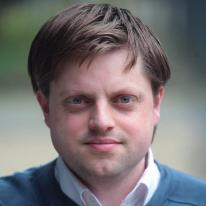
- This event has passed.
Whitaker Ideas Forum: A study of the use of crowdsourcing by research funding agencies in call processes
March 13, 2019 @ 1:00 pm - 2:00 pm
Speaker(s): Eoin Cullina
Affiliation: LERO
Organised by: Whitaker Institute for Innovation and Societal Change, NUI Galway
Event Navigation
Scientific research and the work of research funding agencies (RFAs) has in recent times been impeded by various obstacles and challenges. RFAs are predominantly engaged in tasks surrounding the assessment and funding of research projects through competitive open call processes. Such processes face various problems. Scientific research in recent years has seen increased competition between participants for decreasing resources globally. Furthermore, existing international call assessment/peer review processes have shown intellectual insularity, a lack of flexibility and a lack of transparency in selection mechanisms. RFAs have also sought new means by which to involve the public in the support of science and research. RFAs are reluctant to involve the public in the process of selecting projects that require research funding. This is due to the fact that funding proposals are complex documents and ordinarily, experts are required to evaluate these proposals.
Crowdsourcing presents solutions to many of these challenges. While research has seen the advancement of various crowdsourcing models and taxonomies, it is posited that many of these do not suit the specific needs of RFAs.
The research features two major components. First, expert interviews were conducted with crowdsourcing experts and research funding experts in respect of the challenges faced by funding agencies in opening call processes. Second, two case studies were completed with one national and one pan-European funding agency in examining crowdsourcing practices in context.
This research presents an adapted crowdsourcing framework for selecting, formulating and evaluating crowdsourcing practices for use by public RFAs and provides further guidance for funding agencies seeking to implement crowdsourcing.
 This is one of a series of seminars in the Whitaker Ideas Forum. Eoin will be representing the Agile and Open Innovation research cluster.
This is one of a series of seminars in the Whitaker Ideas Forum. Eoin will be representing the Agile and Open Innovation research cluster.
 The Whitaker Ideas Forum is a weekly seminar, running Wednesday’s throughout the semester from 1:00pm-2:00pm in CA110. It provides the opportunity for members of the Institute to showcase their research. The result are presentations that highlight the diversity of the research being undertaken, while allowing for an opportunity to engage in discussions and, sometimes, collaboration with attendees. Below, you will find a list of this semester’s seminars, please click the title for more information on that seminar.
The Whitaker Ideas Forum is a weekly seminar, running Wednesday’s throughout the semester from 1:00pm-2:00pm in CA110. It provides the opportunity for members of the Institute to showcase their research. The result are presentations that highlight the diversity of the research being undertaken, while allowing for an opportunity to engage in discussions and, sometimes, collaboration with attendees. Below, you will find a list of this semester’s seminars, please click the title for more information on that seminar.
| Date | Presenter | Seminar Topic | Whitaker
Research Cluster |
| 23 January | Eoin Daly | Popular Sovereignty after Brexit | Conflict, Humanitarianism and Security |
| 30 January | Tom Gillespie | Rising waters and falling prices: The effects of flood risk on the Irish housing market | SEMRU |
| 6 February | Sinead Mellett | Farmers perception of climate change in Ireland | Innovation and Structural Change |
| 13 February | Eimear Heaslip | Learning from Living Labs: Experiences from the field | Environment, Development and Sustainability |
| 20 February | Lorraine D’Arcy | Spatial Planning, Urban Design, Transport and Human Health – Much more than footpaths and cycleways | Social Sciences Research Centre |
| 27 February | Luke McGrath | Natural capital accounting for Ireland through boom and bust: Genuine Savings 1990-2016 | SEMRU |
| 6 March | Dmitry Brychkov | Systems Social Marketing Approach to Upscale Galway Cycling System | Applied Systems Thinking |
| 13 March | Eoin Cullina | A study of the use of crowdsourcing by research funding agencies in call processes | Agile and Open Innovation (LERO) |
| 20 March | Aristides Vara Horna | Domestic Violence and Businesses: Consequences and Responses in Global South | Gender and Public Policy |
| 27 March | Valerie Ledwith | Discounting the Displaced: Examining Hungary’s Denial of Human Security for Migrants, Asylum Seekers and Refugees
|
Population and Migration |

